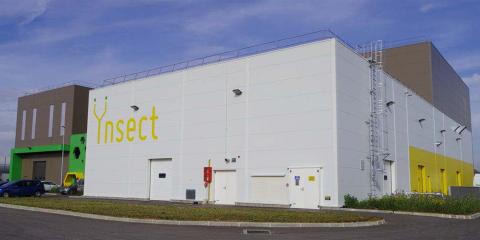Ÿnsect leads the way in turning insects into premium, high-value ingredients. The French company offers a natural, long-term, and protein-packed solution to the growing global demand for food.
Ÿnsect uses patented low-footprint vertical farms to breed mealworm beetles. Since its founding in 2011, Ÿnsect has aimed to make insects the top ingredient for plants, domestic animals and people.
Ÿnsect was selected via CleanTech Open France to take part in EIT Climate-KIC's Accelerator programme in 2015, entering Stage 3 of the acceleration process. Stage 3 allows businesses to get ready for launch by helping them find customers, development partners or investors. EIT Climate-KIC provided Ÿnsect with venture development services and EUR 50 000 in financial support through this programme.
By offering an insect protein alternative to traditional animal and fish-based feed sources, Ÿnsect can help offset the growing competition for ocean fish stock required to feed two billion more people by 2050, while alleviating fish, water and soil depletion, as well as agriculture’s staggering 25% share of global greenhouse gas emissions. Our goal is simply to give their natural place in the food chain back to insects.
Antoine Hubert, Ÿnsect CEO and Chairman
In 2014, the company won the People’s Choice award at the Cleantech Open Global Forum in San Francisco. It has raised over USD 500 million to date through major investors like Crédit Agricole, BPI France, and Robert Downey Jr's Footprint Coalition. Ÿnsect is fast becoming the global leader in alternative protein, entering the human food market in 2021 and expanding from Europe into the North American market in 2022.
Ÿnsect is now an internationally recognised brand with endorsements from the Certified B Corporation, the World Economic Forum, and the UN Global Compact. It has been featured in the 2020 Global Cleantech 100 list, the guide to the most innovative and promising companies poised to impact the market and the future of global industries in the next five to ten years.



 Share this page
Share this page


